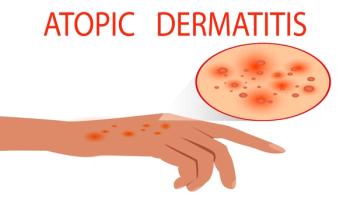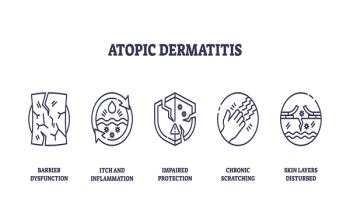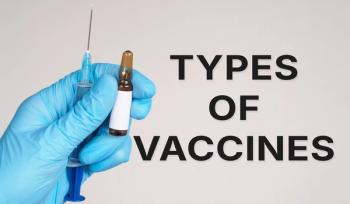
Integrating these care services can enhance patient QOL and address unmet needs in serious respiratory illnesses, explains Natasha Smallwood, BMedSci, MBBS, MSc, Monash University.

Maggie is a senior editor for The American Journal of Managed Care® (AJMC®) and produces written, video, and podcast content covering several disease states. She joined AJMC® in 2019, and has been with AJMC®’s parent company, MJH Life Sciences®, since 2014, when she started as a copy editor.
She has a BA in English from Penn State University. You can connect with Maggie on LinkedIn.

Integrating these care services can enhance patient QOL and address unmet needs in serious respiratory illnesses, explains Natasha Smallwood, BMedSci, MBBS, MSc, Monash University.

Teclistamab shows promising real-world effectiveness and safety in older adults with relapsed/refractory multiple myeloma (R/R MM), matching clinical trial outcomes.

It's important to enhance MG treatment outcomes with strong provider-patient relationships and ongoing monitoring, explain Ratna Kiran Bhavaraju-Sanka, MD, and Beth Stein, MD.

Findings from the ROCKET-SHUTTLE trial reveal the benefits of combining the anti-OX40 monoclonal antibody with topical therapies for atopic dermatitis.

The LINKER-SMM1 trial evaluates linvoseltamab's safety and efficacy in high-risk smoldering multiple myeloma, aiming to delay disease progression.

Research reveals that patients with both rheumatoid arthritis and MASH cirrhosis face significantly higher cardiovascular risks.

Efgartigimod shows promising early response in generalized myasthenia gravis, especially in patients with short disease duration and severe bulbar symptoms.

New findings reveal sotatercept's significant benefits for right ventricular function and tricuspid regurgitation in pulmonary arterial hypertension.

On this episode of Managed Care Cast, experts discuss behavioral health services, stigma reduction, and the 4 dimensions of recovery.

Hearing loss affects mental health, cognition, relationships, and care access, but early intervention and holistic support can improve quality of life.

Research shows that integrating pediatric behavioral health services reduces depression and anxiety symptoms, improving outcomes for children in primary care settings.

More than 2700 parents responded to a survey from the Washington Post and KFF on routine and seasonal childhood vaccinations for their children.

In a recent webinar, experts explored the Most Favored Nation mandate’s implications on drug pricing, patient access, and pharmaceutical innovation.

On July 9, 2025, experts from across Providence Health & Services gathered in Garden Grove, California, for in-depth discussions on patient-centered care for chronic diseases.

Cilta-cel demonstrates superior efficacy and durability in treating high-risk myeloma, balancing effectiveness with safety concerns for patients.

AD-related outcomes were compared in patients treated with JAK1 inhibitors and IL-13 antibodies, with short-term efficacy biomarkers considered for treatment outcomes.

A new FDA-approved blood test for Alzheimer disease could transform diagnosis and treatment accessibility, according to this conversation with Howard Fillit, MD, and Anthony “Nino” Sireci, MD, MSc.

New guidelines and advocacy enhance myasthenia gravis treatment access, promoting proactive management and improved insurance coverage for diverse patient populations.

Discontinuing dupilumab for atopic dermatitis (AD) may increase relapse risk, which requires ongoing management and tailored treatment strategies to manage that risk.

Long-term follow-up data on the use of BCMA-directed RNA chimeric antigen receptor T-cell therapy (CAR T) for refractory generalized myasthenia gravis show patient outcomes at 2, 3, 6, 9, and 12 months.

In this conversation with Reuben Daniel, associate vice president of artificial intelligence at UPMC Health Plan, we dive into how UPMC Health Plan builds trust with providers and members, discuss challenges of scaling AI effectively, and hear about concrete examples of AI's positive impact.

Rusfertide has received orphan drug, fast track, and breakthrough therapy designations from the FDA, and in this interview, Andrew Kuykendall, MD, Moffitt Cancer Center, emphasizes the critical need for therapies that offer a sense of normalcy to individuals with polycythemia vera.

Close to 40% of patients with right heart failure and pulmonary arterial hypertension (PAH) who remain critically ill and require admittance to the intensive care unit die within 1 year of that hospitalization.

There are many types of vaccine technologies, and this article will explore a diverse set that includes attenuated live pathogens and toxoid vaccines, highlighting their mechanisms, benefits, and limitations.

Lebrikizumab shows sustained efficacy and safety in managing moderate to severe atopic dermatitis over 3 years, reducing the need for rescue therapies.

The definition of comprehensive non-small cell lung cancer (NSCLC) testing is rapidly evolving with new biomarkers and therapies, according to Julia Rotow, MD, creating added challenges for community practices.

Renal denervation modestly lowers blood pressure, with durable long-term benefits, according to Deepak L. Bhatt, MD, MPH, MBA.

Using US claims data, the authors evaluated oral glucocorticoid (GC) use at 5 time points during their retrospective analysis: 3 months before starting efgartigimod and 3, 6, 9, and 12 months after starting efgartigimod.

Treatment challenges that Anasuya Gunturi, MD, PhD, encounters in her work at Lowell General Hospital include language differences and confusion about scheduled appointments.

The humanized IgG4 monoclonal antibody was first approved for myasthenia gravis in the US in 2023, with approvals in Japan and the European Union following later that year and 2025, respectively.

259 Prospect Plains Rd, Bldg H
Cranbury, NJ 08512
© 2025 MJH Life Sciences®
All rights reserved.
